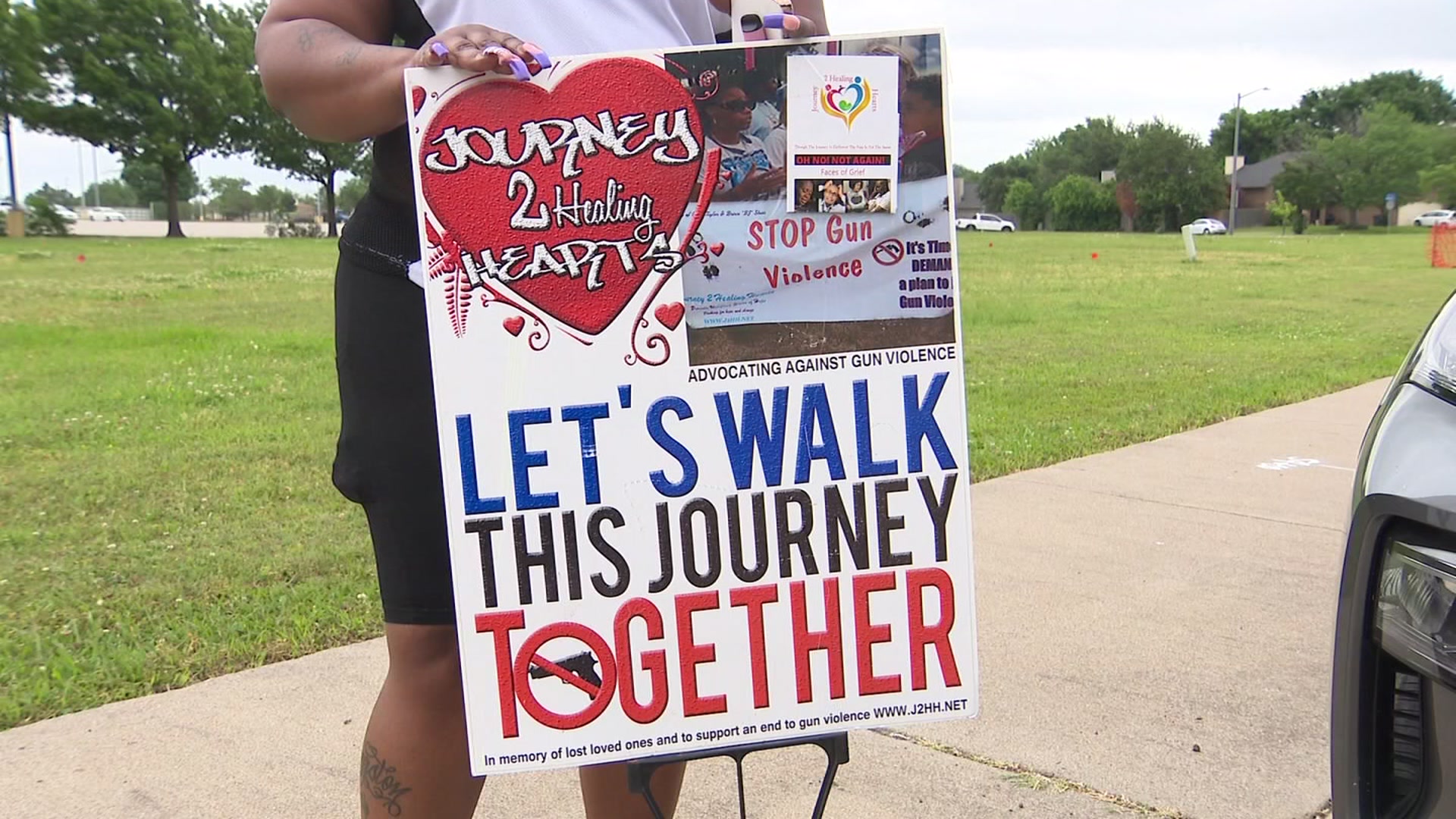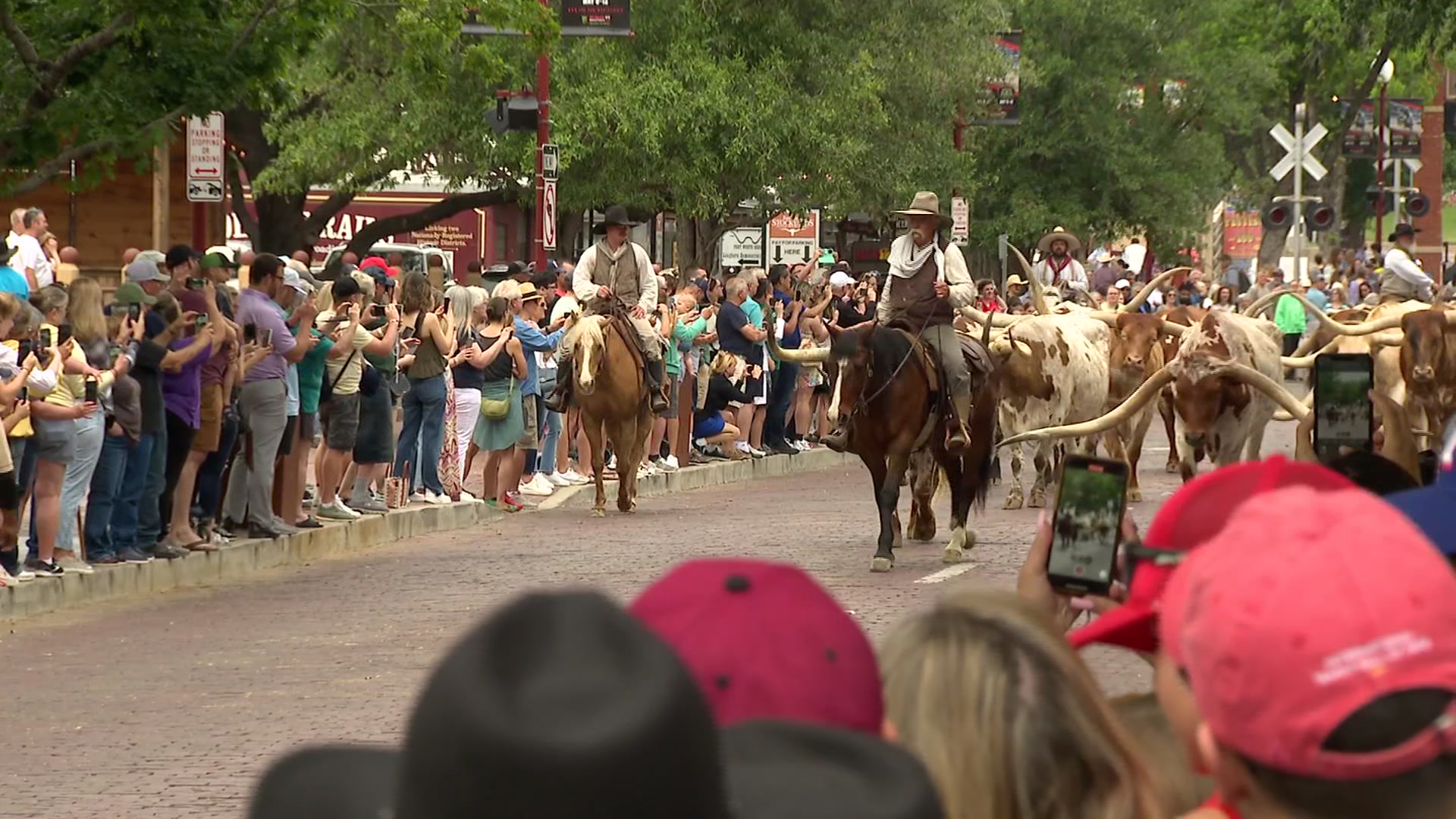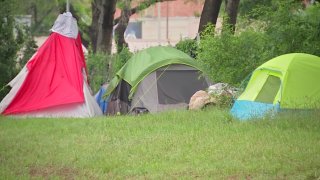
They served their country but they have no home.
The battle to end veteran homelessness continues, and a local group on the frontlines in Dallas has some good news to share that could be a game-changer.
In the last couple of years, the Metro Dallas Homeless Alliance has become laser-focused on helping get every veteran they can off the streets.
It's become a top priority for the organization and it seems to be working.
Get DFW local news, weather forecasts and entertainment stories to your inbox. Sign up for NBC DFW newsletters.
“No one should ever have to face living without a home, particularly the veterans who have served our country,” said Sarah Kahn, chief program officer for MDHA. “This is a top priority for the agency. It has brought together and has been able to galvanize a lot of support from community partners and providers to be able to tackle this problem.”
During the annual Point-In-Time count earlier this year, the organization counted around 300 homeless veterans in Dallas and Collin counties.
During a Veterans Day Housing Fair event this week, MDHA announced that around 60% of that number has since been put in the process of leasing and moving into permanent housing.
Local
The latest news from around North Texas.
Since the organization prioritized finding housing for veterans, they have reduced veteran homelessness by 18% since 2019. Additionally, housing rates are proportional to the demographics of the veterans experiencing homelessness in the community.
According to MDHA, 58% of the veterans identified as experiencing homelessness are Black and Black veteran households make up 60% of our housing placements in an average month.
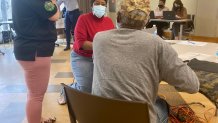
“Ultimately homelessness is a housing problem. And veterans who become homeless really do so for the same reasons that other people become homeless. Incomes have not kept pace with housing costs, several households have faced economic fallout from the pandemic, which makes it harder to pay the rent at the end of the day along with the other supports that you need,” Kahn said. “They may also be facing traumas and have support needs because of their experience in active duty, layered on top of the other economic hardships that other people are experiencing today.”
Nationally, Kahn said there has been an uptick in homeless veterans.
According to a report released earlier this year by the Department of Housing and Urban Development, the number of veterans experiencing homelessness increased in 2020. The financial and economic problems created by the coronavirus pandemic have only made it worse.
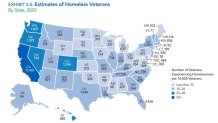
States like California, Colorado, Hawaii, Nevada, Oregon and Washington have been hit particularly hard, according to HUD. The increase occurred after 10 years of improvements.
National data showed that out of every 10,000 veterans in the United States, 21 were experiencing homelessness in 2020. Veterans account for about 8 percent of all homeless adults.
While there was a record number of homeless individuals reported in this year’s PIT count in Dallas and Collin counties, Kahn said they have actually seen a nearly 20 percent decrease in veterans experiencing homelessness over the last two years.
Click here to read more about the local PIT count report.
“We are well on our way to achieving being an effective and two veteran homelessness, which really means that our homeless response system has the capacity to provide housing resources to every veteran who becomes homeless and to connect people with housing as quickly as possible,” she said.
So how is that possible?
MDHA listed the reasons how they did it in a presentation with city leaders this week:
- Leveraged the collective impact of key public and private partners, USICH, VA, local governments, especially the City of Dallas, non-profit providers, and the philanthropic sector.
- Expanded permanent housing options by aligning public and private resources and collaborating with local landlords.
- Streamlined pathways out of homelessness, by identifying every veteran who becomes homeless and quickly connecting them to housing and supportive services to promote long-term housing stability.
- Continuing work on the community-wide Dallas R.E.A.L-Time Rapid Rehousing effort, which has a goal of housing over 2,700 individuals by the end of 2023.
“The strategies that we’ve put in place to combat veteran homelessness are the same strategies that will be replicating to tackle homelessness among all populations of people,” Kahn said.
One of the biggest game-changers is also funding. With over $70 million in federal covid relief funds and private donations, MDHA said it has been working with the city and other nonprofits to best leverage that money toward getting more homeless individuals overall off the streets.
“We are in a position where there’s a historic level of new resources in the community to be able to combat homelessness. We have seen tremendous collaboration across public and private partners to bring those resources together and to target them to best practice interventions that provide rental assistance with wrap-around supportive services to individuals and families,” said Kahn.
As reported in May, the MDHA is also working on improving the return to homelessness rate. Currently, about 21% of clients that are placed in housing return to homelessness.
"The better we get at assessing clients' needs and matching them to the right type of housing, the more our rate of returns to homelessness will decrease. And reducing inflows helps reduce the rate of homelessness," said Peter Brodsky, MDHA board chairman. "We have already seen a decrease in the rate of returns from clients who are placed in permanent supportive housing. For instance, only 4% of the veterans we placed returned to homelessness in 2019."

